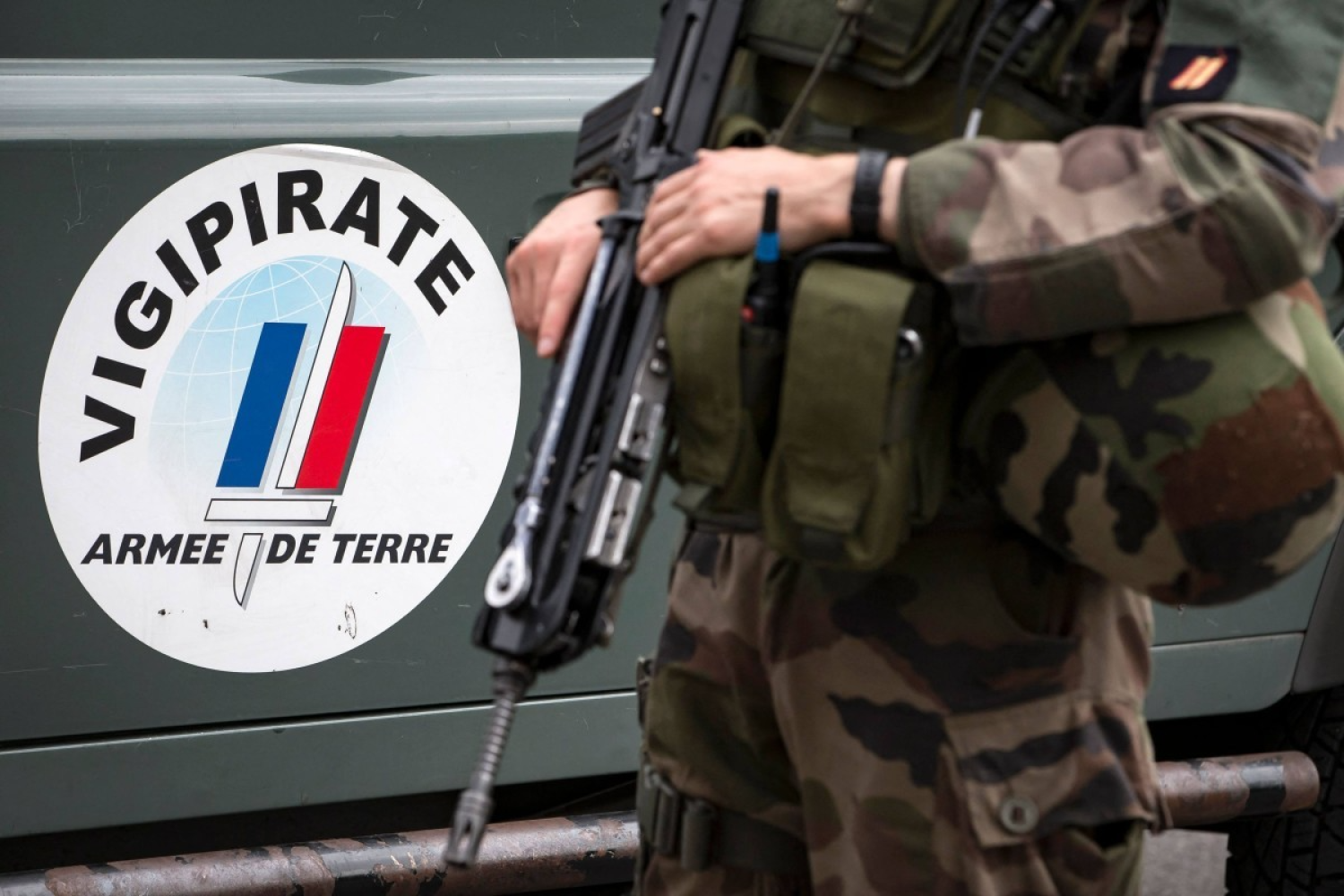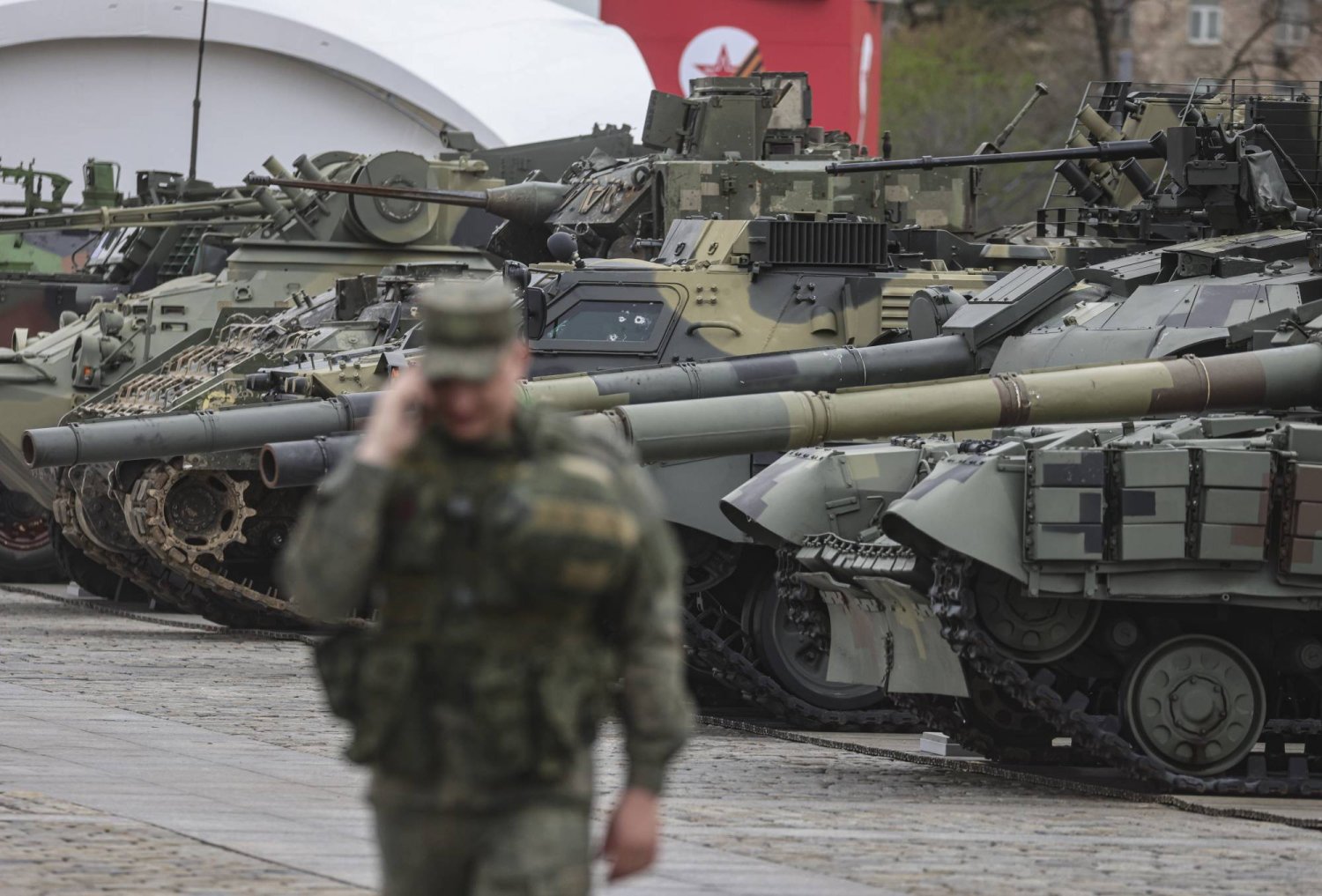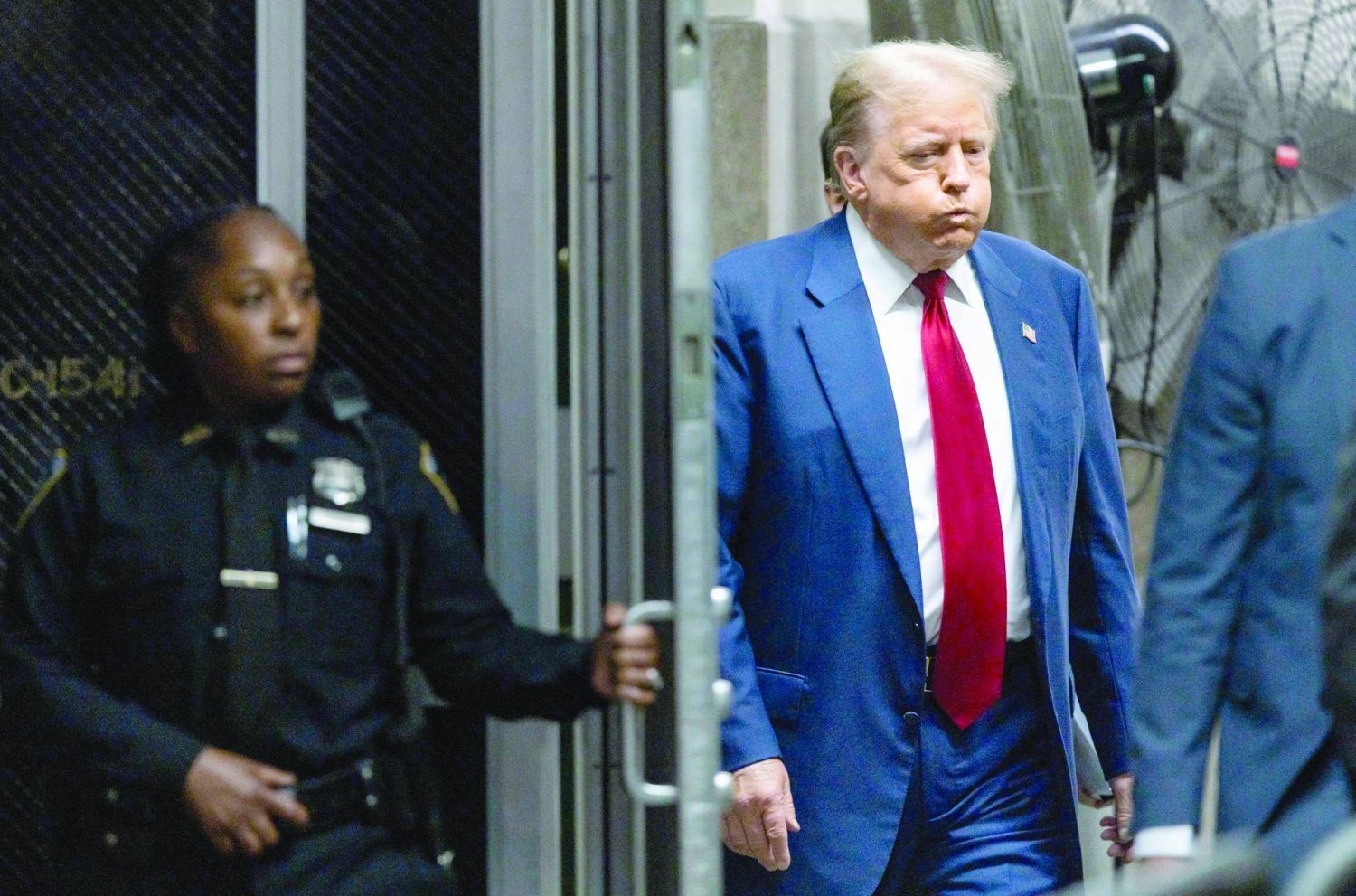Dozens of protesters took over a building at Columbia University in New York early Tuesday, barricading the entrances and unfurling a Palestinian flag out of a window in the latest escalation of demonstrations against the Israel-Hamas war that have spread to college campuses nationwide.
Protesters on Columbia's Manhattan campus locked arms in front of Hamilton Hall early Tuesday and carried furniture and metal barricades to the building, one of several that was occupied during a 1968 civil rights and anti-Vietnam War protest, video footage showed. Posts on an Instagram page for protest organizers shortly after midnight urged people to protect the encampment and join them at Hamilton Hall. A “Free Palestine” banner hung from a window.
“An autonomous group reclaimed Hind’s Hall, previously known as ‘Hamilton Hall,’ in honor of Hind Rajab, a martyr murdered at the hands of the genocidal Israeli state at the age of six years old,” CU Apartheid Divest posted on the social media platform X early Tuesday.
Hamilton Hall is an academic building that opened in 1907 and is named after Alexander Hamilton, who attended King's College, Columbia's original name.
The student radio station, WKCR-FM, broadcast a play-by-play of the hall’s takeover, which occurred nearly 12 hours after Monday’s 2 p.m. deadline for the protesters to leave an encampment of around 120 tents or face suspension.
University representatives did not immediately respond to emails requesting comment Tuesday, but the public safety department said in a statement that access to the campus has been limited to students living in the residential buildings and essential employees, such as dining, public safety and maintenance staff. There was just one access point into and out of campus.
“The safety of every single member of this community is paramount,” the advisory said.
In the X post, protesters said they planned to remain at the hall until the university agreed to three demands: divestment, financial transparency and amnesty.
Universities nationwide are grappling with how to clear out encampments as commencement ceremonies approach, with some continuing negotiations and others turning to force and ultimatums that have resulted in clashes with police. At many campuses, including Columbia, things appeared to be coming to a head.
At California State Polytechnic University, Humboldt, where protesters have occupied two buildings, dozens of police officers in helmets and carrying batons marched onto campus early Tuesday and cleared both halls. The university said 25 people were arrested and there were no injuries. The start of the sweep was broadcast on the Facebook page of KAEF-TV, a satellite of KRCR-TV, until police detained the reporter.
The university earlier announced a “hard closure,” meaning that people were not permitted to enter or be on campus without authorization. At 3:24 a.m., the university’s website posted a shelter-in-place order for the campus.
Yale authorities on Tuesday morning cleared a protesters’ encampment after students heeded final warnings to leave, university officials said. No arrests were reported. Demonstrators said on social media that they were moving their gathering to a sidewalk area. The encampment was set up Sunday, six days after police arrested nearly 50 people, including 44 students, and took down dozens of tents.
Dozens of people were arrested Monday during protests at universities in Texas, Utah, Virginia and New Jersey, while Columbia said hours before the takeover of Hamilton Hall that it had started suspending students. At the University of Texas at Austin, 79 people involved in the Monday protest were jailed, according to the Travis County sheriff’s department, most charged with criminal trespass.
A small group of students at Portland State University in Portland, Oregon broke into the university’s library late Monday, drawing a sharp rebuke from city officials and the district attorney. The downtown campus, where protesters had been demonstrating mostly peacefully, was closed Tuesday due the library occupation.
Also Tuesday, police cleared an encampment at the University of North Carolina at Chapel Hill and detained about 30 people. At the University of Connecticut, police made arrests after protesters refused orders to remove tents Tuesday morning.
The nationwide campus protests began as a response by some students to Israel’s offensive in Gaza after Hamas launched a deadly attack on southern Israel on Oct. 7. Militants killed about 1,200 people, most of them civilians, and took roughly 250 hostages. Vowing to stamp out Hamas, Israel has killed more than 34,000 Palestinians in the Gaza Strip, according to the local health ministry.
Israel and its supporters have branded the university protests as antisemitic, while critics of Israel say it uses such allegations to silence opponents. Although some protesters have been caught on camera making antisemitic remarks or violent threats, organizers of the protests, some of whom are Jewish, say it is a peaceful movement aimed at defending Palestinian rights and protesting the war.
As ceasefire negotiations appeared to gain steam Tuesday, it wasn't clear whether those talks would inspire campus protesters to ease their efforts.
The plight of the arrested demonstrators has become a central part of protests, with students and a growing number of faculty demanding amnesty for protesters. At issue is whether the suspensions and legal records will follow students through their adult lives.
The Texas protest and others, including in Canada and Europe, grew out of Columbia's early demonstrations. On Monday, student activists defied the 2 p.m. deadline to leave the encampment. Instead, hundreds of protesters remained. A handful of counterdemonstrators waved Israeli flags, and one held a sign reading, “Where are the anti-Hamas chants?”
While the university didn’t call police to roust the demonstrators, school spokesperson Ben Chang said suspensions had started but could provide few details. Protest organizers said they were not aware of any suspensions as of Monday evening.
At the University of Utah, police dragged students off by their hands and feet, snapping the poles holding up tents and zip-tying those who refused to disperse. And at Princeton University, students were arrested after briefly occupying a building that houses its graduate school.
In a rare case, Northwestern University said it reached an agreement with students and faculty who represent the majority of protesters on its campus near Chicago. It allows peaceful demonstrations through the end of spring classes in exchange for some concessions.
At the University of Southern California, organizers of a large encampment sat down with university President Carol Folt for about 90 minutes Monday. Folt declined to discuss details but said talks would continue Tuesday.
USC officials this month refused to allow the valedictorian, who has publicly supported Palestinians, to make a commencement speech, citing nonspecific security concerns. Administrators then scrapped the keynote speech by filmmaker and alumnus Jon M. Chu and declined to award honorary degrees.
















